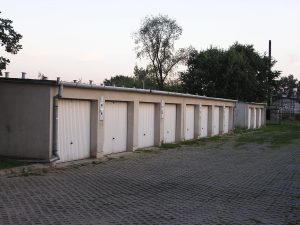
When it comes to your garage door, there are several preventative maintenance and repair tasks you can perform yourself, which is great, because it reduces the cost of having a professional repair done on your garage door. And while we love a good DIY moment, garage door springs are definitely not one of those moments.
It’s one thing to readjust the door opener limits or change our the garage door trolley, but the springs on your garage door pose risks that require the hand of a skilled door technician to deal with safely. Garage door springs are tightly wound under incredible tension. They are designed to lift a heavy garage door with ease.
The Very Real Dangers of DIY Garage Door Spring Repair
When garage door springs break, or a novice tries to fiddle with them, they can cause serious bodily injury and even death. Seriously – according to CPSC, of the average 30 people/year that die from garage door accidents, accidents involving springs account for 2/3 of those.
Spring problems you should leave to the pros at SACS include:
- Broken torsion and extension springs
- Deformed springs
- Corroded springs
- Springs out of balance
The only time we might say, hey – go ahead, is if your springs are simply squeaky. A little bit of spray grease can help with that. The only reason this is an okay DIY task is because (a) there’s nothing structurally wrong with the spring and (b) you don’t have to handle the spring to do it.
Point is: unless you really know what you are doing, garage door springs are best left to the professionals.
Torsion vs. Extension Garage Door Springs: What’s the Difference?
There are two kinds of garage door springs. Torsion springs are the industry standard for modern garage doors, but you’ll sometimes find extension springs as well, especially on older, manual and tilt-up garage doors. Let’s take a look at the specs of each:
Garage Door Torsion Springs
Torsion springs are a pair of large coil springs located at the end of the trolley track at the center top of your garage door. They wind or unwind to lift or lower your garage door, using torque to pull the load. Advantages of torsion springs are:
- They open the door in a more controlled motion.
- They provide for a much smoother movement.
- They’re quiet, so ideal if the garage door is located near a bedroom or living area.
- They reduce wear and tear on the other garage door parts.
- When they break, they break in place.
- They have a higher life cycle.
Disadvantages to torsion springs are that they’re more expensive than extension springs, and that if you do decide to DIY your spring repair, torsion springs are particularly dangerous to pinching fingers.
Garage Door Extension Springs
Extension springs are long springs attached to either side of your garage door. They run diagonally from the top track to the foot of the garage door, and they use tension to lift and lower the door for the opener. Advantages to extension springs include:
- They’re cheaper than torsion springs.
- When extension springs wear down, it’s much easier to spot visibly.
- They’re ideal for tilt-up garage doors.
- Extension springs are better for spaces with low overhead.
However, there are some drawbacks to having extension springs on your garage door:
- They tend to have a much jerkier motion.
- Extension springs can be loud
- They tend to wear out the components of the door faster.
- Extension springs require more maintenance.
- Extension springs are more dangerous when they break. If one snaps, it could fly off, possibly damaging vehicles, items you have in your garage, or even anyone who happens to be nearby.
You can probably see why we recommend having us fix or replace your garage door springs for you.
Which Spring Should You Choose for a New Garage Door?
We definitely prefer torsion springs if you are considering installing a new garage door or converting your manual door to an automatic opener system. However, one thing that’s great about extension springs is they don’t need any overhead space. This is particularly useful in older Sacramento homes that have super-small garages stuffed in them.
Don’t worry – just because you need/choose extension springs doesn’t mean your garage door has to be manual. There are automatic garage door openers that are side-mounted so don’t need any overhead space.
By the Way – Have You Been Having Problems with the Garage Door Opener?
If you’re having issues with your springs, you may also be looking at some garage door opener repairs pretty soon after. Because the springs work so closely with the opener system, if the opener has been straining to help ailing springs, or out-of-balance springs have messed up the motor, your garage door opener might be on the fritz after your springs are fixed.
If your garage door all of a sudden got noisy, jerky, closes too fast, raises to slow, etc, it could be a few things:
- Limits need fixed
- Door needs rebalanced
- Opener motor needs replaced
- Worn down gears in the opener
There are a bunch of cool features you’ll find in new garage door openers, anyway. It’s a relatively inexpensive upgrade to make, considering all the benefits they offer. For instance, smart garage door openers can be used and monitored remotely 24/7. As well, new garage door openers come with battery backup units, which are not only vital for safety during wildfire evacs, but are now mandated for all new garage door openers.Got any questions? Call SACS GARAGE DOOR REPAIR 24 hours a day, 7 days a week – especially if you’ve got an emergency with a snapped spring. We’d be glad to help. Serving the Citrus Heights and Greater Sacramento areas, we feature a 100% customer satisfaction guarantee by experienced technicians who always come fully-certified, bonded and insured.
